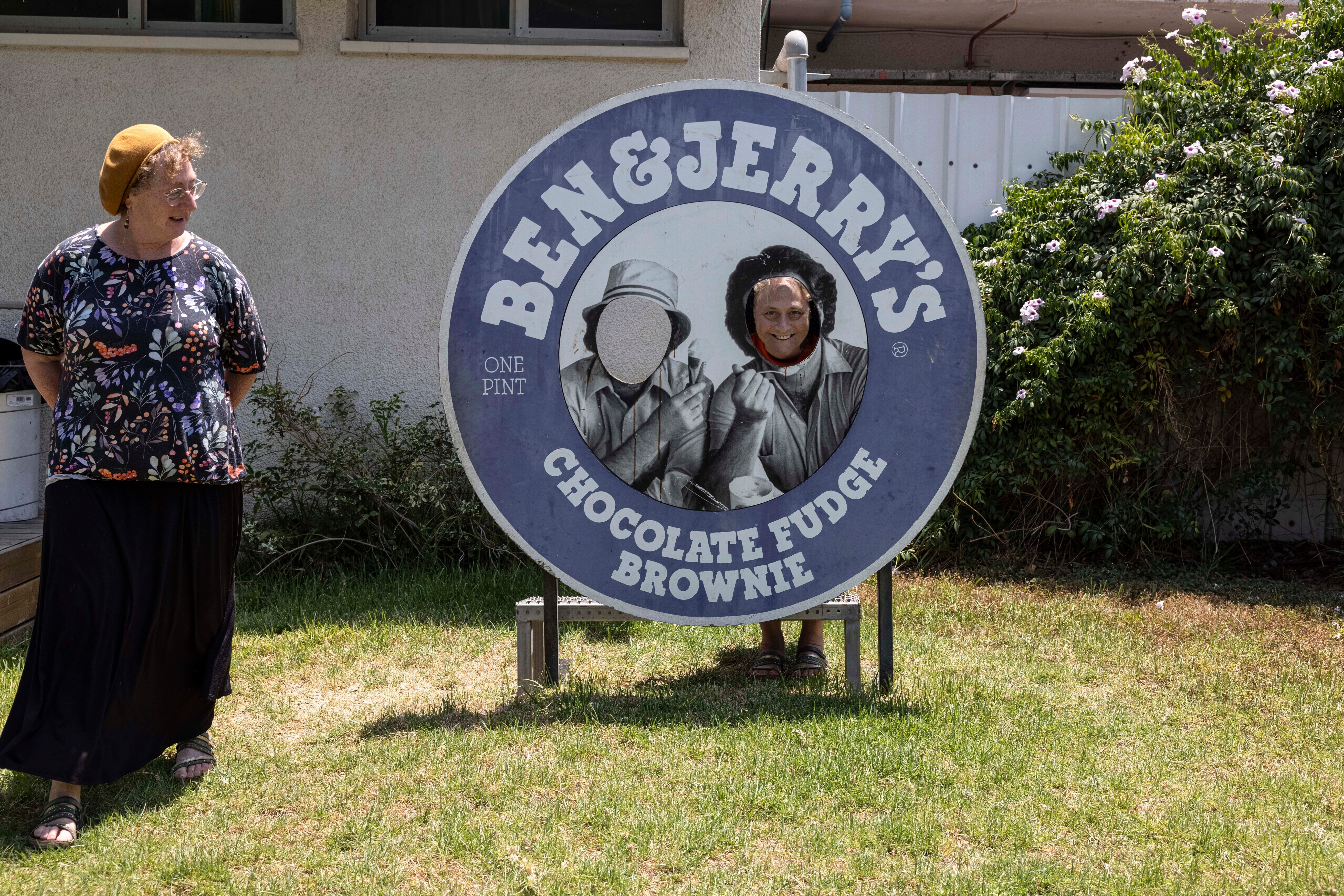Ben & Jerry's Israel business sold; sales to resume
Unilever says it has reached a new business arrangement in Israel that will effectively end Ben & Jerry’s policy of not selling ice cream in annexed east Jerusalem and the occupied West Bank

Your support helps us to tell the story
From reproductive rights to climate change to Big Tech, The Independent is on the ground when the story is developing. Whether it's investigating the financials of Elon Musk's pro-Trump PAC or producing our latest documentary, 'The A Word', which shines a light on the American women fighting for reproductive rights, we know how important it is to parse out the facts from the messaging.
At such a critical moment in US history, we need reporters on the ground. Your donation allows us to keep sending journalists to speak to both sides of the story.
The Independent is trusted by Americans across the entire political spectrum. And unlike many other quality news outlets, we choose not to lock Americans out of our reporting and analysis with paywalls. We believe quality journalism should be available to everyone, paid for by those who can afford it.
Your support makes all the difference.Unilever said Wednesday that it has reached a new business arrangement in Israel that will effectively end Ben & Jerry's policy of not selling ice cream in annexed east Jerusalem and the occupied West Bank.
Israel hailed the move as a victory in its ongoing campaign against the Palestinian-led Boycott, Divestment and Sanctions movement. BDS aims to bring economic pressure to bear on Israel over its military occupation of lands the Palestinians want for a future state.
Unilever, which owns Ben & Jerry's but had distanced itself from the decision to halt sales in the territories, said Wednesday that it had sold its business interest in Israel to a local company that would sell Ben & Jerry's ice cream under its Hebrew and Arabic name throughout Israel and the West Bank.
When it acquired Ben & Jerry's in 2000, the companies agreed that the Vermont ice cream maker's independent board would be free to pursue its social mission, including longstanding support for many liberal causes.
But Unilever would have the final word on financial and operational decisions.
Unilever said it has “used the opportunity of the past year to listen to perspectives on this complex and sensitive matter and believes this is the best outcome for Ben & Jerry’s in Israel.”
In its statement, Unilever reiterated that it does not support the BDS movement. It said it was “very proud” of its business in Israel, where it employs around 2,000 people and has four manufacturing plants.
There was no immediate comment from Ben & Jerry's, but a spokeswoman provided a link to the Unilever announcement.
But reaction to the new agreement arrived quickly.
Omar Shakir, the director of Human Rights Watch for Israel and the Palestinian territories, said Unilever seeks to undermine Ben & Jerry’s “principled decision” to avoid complicity in Israel’s violations of Palestinian rights, which his organization says amount to apartheid, an allegation Israel adamantly rejects.
“It won’t succeed: Ben & Jerry’s won’t be doing business in illegal settlements. What comes next may look and taste similar, but, without Ben & Jerry’s recognized social justice values, it’s just a pint of ice cream.”
Israel hailed the decision and thanked governors and other elected officials in the United States and elsewhere for supporting its campaign against BDS. It said Unilever consulted its Foreign Ministry throughout the process.
“Antisemitism will not defeat us, not even when it comes to ice-cream," Foreign Minister Yair Lapid said. “We will fight delegitimization and the BDS campaign in every arena, whether in the public square, in the economic sphere or in the moral realm.”
BDS, an umbrella group supported by virtually all of Palestinian civil society, presents itself as a non-violent protest movement modeled on the boycott campaign against apartheid South Africa. It does not adopt an official position on how the Israeli-Palestinian conflict should be resolved, and it officially rejects antisemitism.
Israel views BDS as an assault on its very legitimacy, in part because of extreme views held by some of its supporters. Israel also points to the group's support for a right of return for millions of Palestinian refugees — which would spell the end of Israel as a Jewish-majority state — and BDS leaders' refusal to endorse a two-state solution to the conflict.
Ben & Jerry's decision was not a full boycott, and appeared to be aimed at Israel's settlement enterprise. Some 700,000 Jewish settlers live in the occupied West Bank and east Jerusalem, which Israel annexed and considers part of its capital. Israel captured both territories in the 1967 Mideast war, and the Palestinians want them to be part of their future state.
Most of the international community views the settlements as a violation of international law. The Palestinians consider them the main obstacle to peace because they absorb and divide up the land on which a future Palestinian state would be established. Every Israeli government has expanded settlements, including during the height of the peace process in the 1990s.